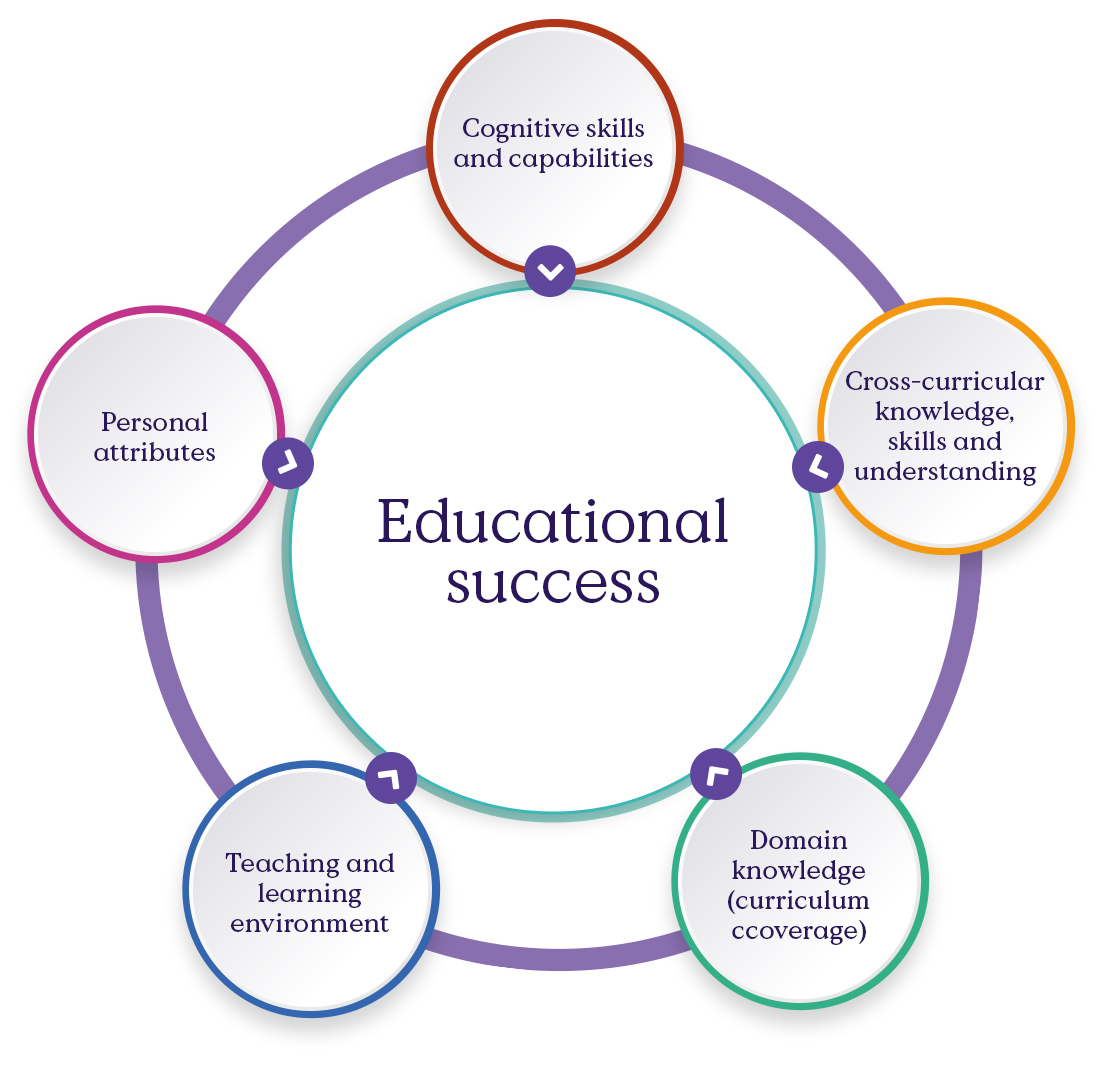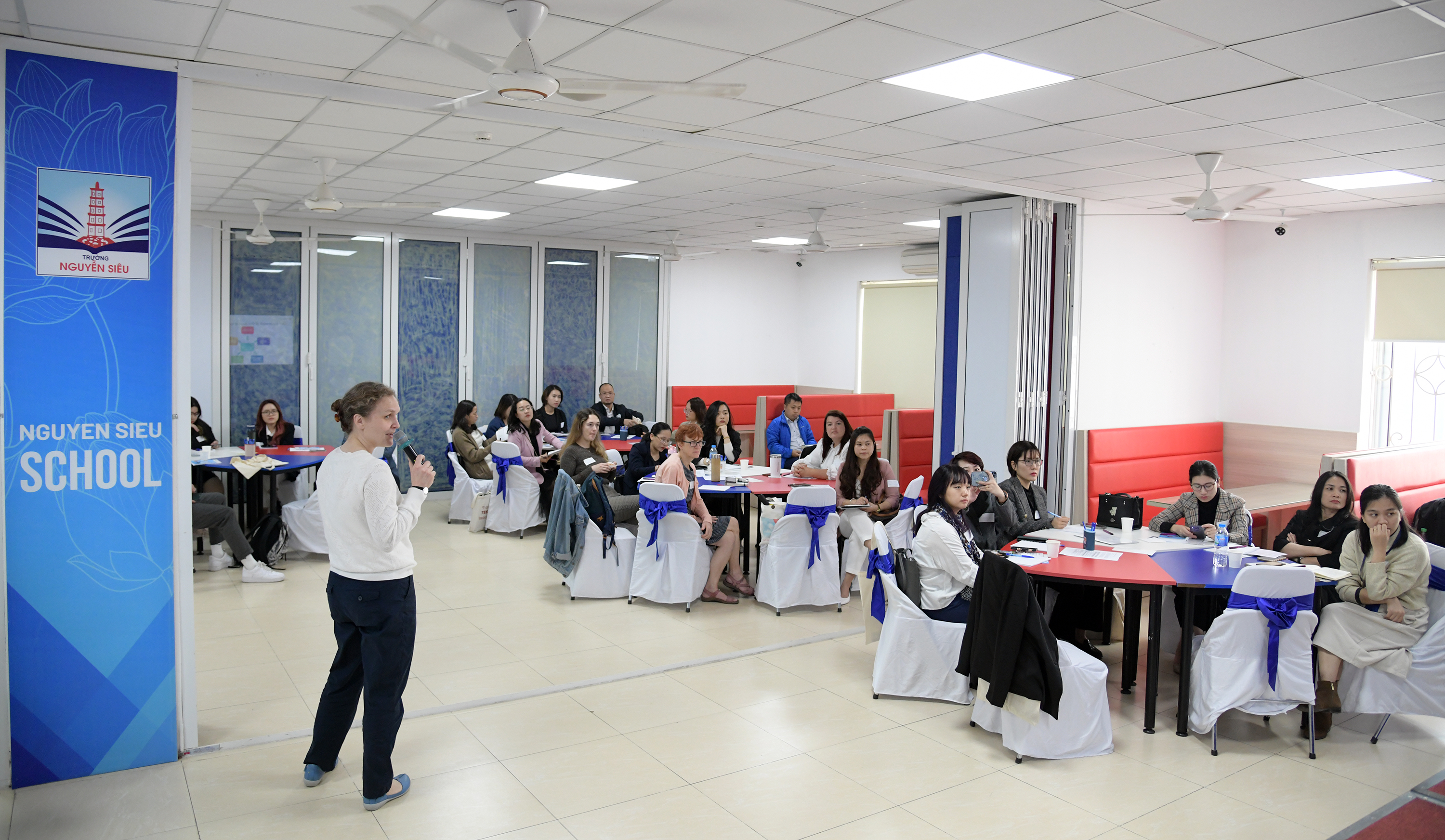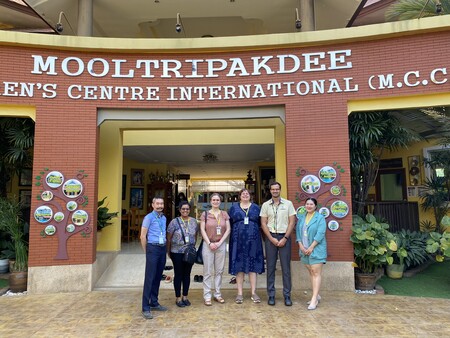Cambridge framework sets out holistic approach to educational success
According to Cambridge research, school teachers should consider a broader, more holistic approach to understanding and supporting learners - including their wellbeing and resilience in times of adversity.

A simple framework developed by Cambridge brings together five areas of teacher insight into their learners' journeys; helping teachers and school leaders make sense of the vast number of assessments and evaluation tools that are available to them, and deliver high quality education.
This is the conclusion of a research article, Creating Cambridge Learner Profiles: A holistic framework for teacher insights from assessments and evaluations, in Research Matters 35, by Dr Irenka Suto, Assistant Director of Assessment, Cambridge CEM.
The Cambridge Learner Profiles framework is gaining momentum. Dr Suto and colleagues at Cambridge University Press & Assessment spoke at workshops for over 80 schools and colleges across Malaysia, Indonesia, Thailand and Vietnam earlier this year. Further events are rolling out from Sri Lanka to Australia this June.
Helping schools help learners
Learner performance is highly integrated and can be better understood through separate components, Dr Suto argues. The framework is presented as a useful high-level instrument that teachers can employ to combine numerical data from baseline and formative assessments, with insights from observations and professional judgements - as well as discussions with learners - to create actionable learner profiles and to identify complementary teaching strategies. Creating Cambridge Learner Profiles makes the case for 'seeing the bigger picture'.
Dr Suto states: "Given the potentially overwhelming complexity of what a rich and holistic education entails, a simple conceptual framework which is grounded in evidence about what is really important to learners' educational success could help school leaders and teachers to make informed decisions, whichever educational philosophy or goals they choose to adhere to."
Bigger picture
Dr Suto's article comes in the wake of Covid-19, which led to school closures around the world, and caused students to miss learning opportunities amid the upheaval of the pandemic. It recognises that learners' psychological wellbeing should be of the utmost importance for teachers, given that children spend around 15,000 hours in education - and that nurturing learners' needs is crucial in terms of their social, societal and economic development.
She states: "It has value in helping teachers to understand the main factors that influence learners' educational success, and hence the areas that a combination of different assessments would ideally cover during a learner's educational journey and why they are useful in a formative sense."
Five areas of teacher insight

The article argues that data collected during the educational journey, both quantitative and qualitative, should be grouped in the five areas above. Additionally, data can be collated on measures of educational outcomes and successes, such as qualification grades and progression to higher education and employment.
Suto provides an explanation of each of the five areas of teacher insight as follows:
Cognitive skills and capabilities: Cognitive skills are 'curriculum free' in the sense that they do not typically feature in school curricula. They include non-verbal reasoning and some types of verbal reasoning. The Cambridge Centre for Evaluation and Monitoring's (CEM) assessments measure learners' ability in 3-D visualisation, spatial aptitude, pattern recognition and logical thinking. Although cognitive skills and capabilities are difficult to teach, learner data in this area is of great value to teachers for understanding learners' potential, identifying support needs and predicting likely educational outcomes.
Cross-curricular knowledge, skills and understanding: These are relevant to many different school subjects and are important for accessing taught curricula. They are much easier to teach and develop outside the classroom. They include core mathematical concepts, vocabulary and language comprehension, and they are also assessed in baseline and entrance tests - and recognised as good predictors of subsequent academic performance.
Domain knowledge: It is well known that prior knowledge, skills and understanding in a given subject is also a solid predictor of educational outcomes in that subject: "Put simply, the greater a learner's coverage of the curriculum and the deeper their understanding of the content, the better their performance in summative assessments is likely to be."
Teaching and learning environment: This does not mean reducing curriculum content demand by decreasing the volume, depth or breadth of domain coverage. Instead, 'reducing demand' to improve learners' performance is about ensuring that pupils are not exposed to unnecessary demands that might include the distractions that can occur in a classroom, or inadequate teaching methods. Learners should be in the best possible place to learn.
Personal attributes: These are emotive, attitudinal and behavioural descriptors of individual learners. Teachers can improve educational outcomes by attending to their learners' personal expertise in learning and their learning readiness: "We believe every learner possesses a unique combination of personal attributes beyond their cognitive ability that help (or hinder) their learning."
Next steps
Dr Suto concludes: "We believe the framework will be useful for teachers and school leaders in making sense of the vast number of assessments and evaluation tools that are available to them from our organisation and many others. There is a risk that data and information on learners is so plentiful that, at times, it can be difficult to see the wood for the trees."
The roll out of the Cambridge Learner Profiles framework across the world will be backed up by the development of new technology, such as interactive tools and dashboards, for teachers to capture and evaluate data from different resources and assessments, putting research into practice.


Read the full paper here
If you would like to subscribe to the biannual Research Matters, click here.
